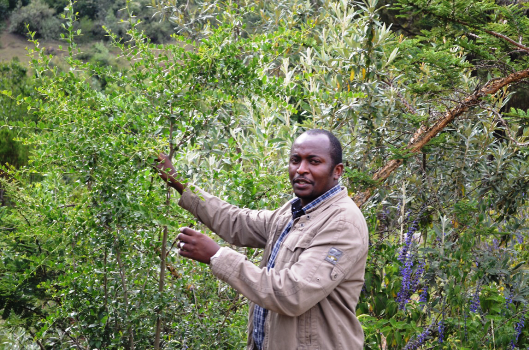The side effects of chemotherapy are also undesirable and effective cure is not guaranteed particularly when the disease is diagnosed at advanced stages.
A sizeable number of cancer patients have therefore resulted to the use of herbal medicines. Plants have for a long time been used in the treatment and management of cancer. Some of the plants have been documented while many others are yet to be. In the recent past, there has been a surge of interest in the use of alternative medicine in Kenya.

Consequently, a wealth of knowledge is now available on undocumented plants that are ‘effective’ against tumours. Proper scientific validation of the healing effects of the documented plants regiments as well as their safety is highly desirable.
In this regard, in a collaborative project between Kenya Medical Research Institute (KEMRI) and Mount Kenya University, several medicinal plants used in the management of ‘cancer-like’ symptoms were collected from Kilifi, Ngong, Limuru, Gilgil and Kakamega regions of Kenya. The project funded by the National Commission for Science and Technology is aimed at developing safe and effective herbal alternatives in the management of cervical and prostate cancer. Dr. Peter G. Kirira, Deputy Director in the Directorate of Research & Development and the Lead Scientist in this project is hopeful that this project will lead to identification of potential natural remedies that are affordable to Kenyans.
In describing the project, Dr. Kirira explained that the collected plants will be processed and extracted using water and other solvents to obtain different natural chemicals. These chemicals will be tested against human cancer cell lines that will be procured from American Type Culture Collection (ATCC), the world premier biological materials resource and standards organisation. Natural chemicals that fight cancer cells while not harming normal cells will be selected for further tests and consequently formulated into herbal drugs. This work will be carried out at both MKU Research Centre and KEMRI.
